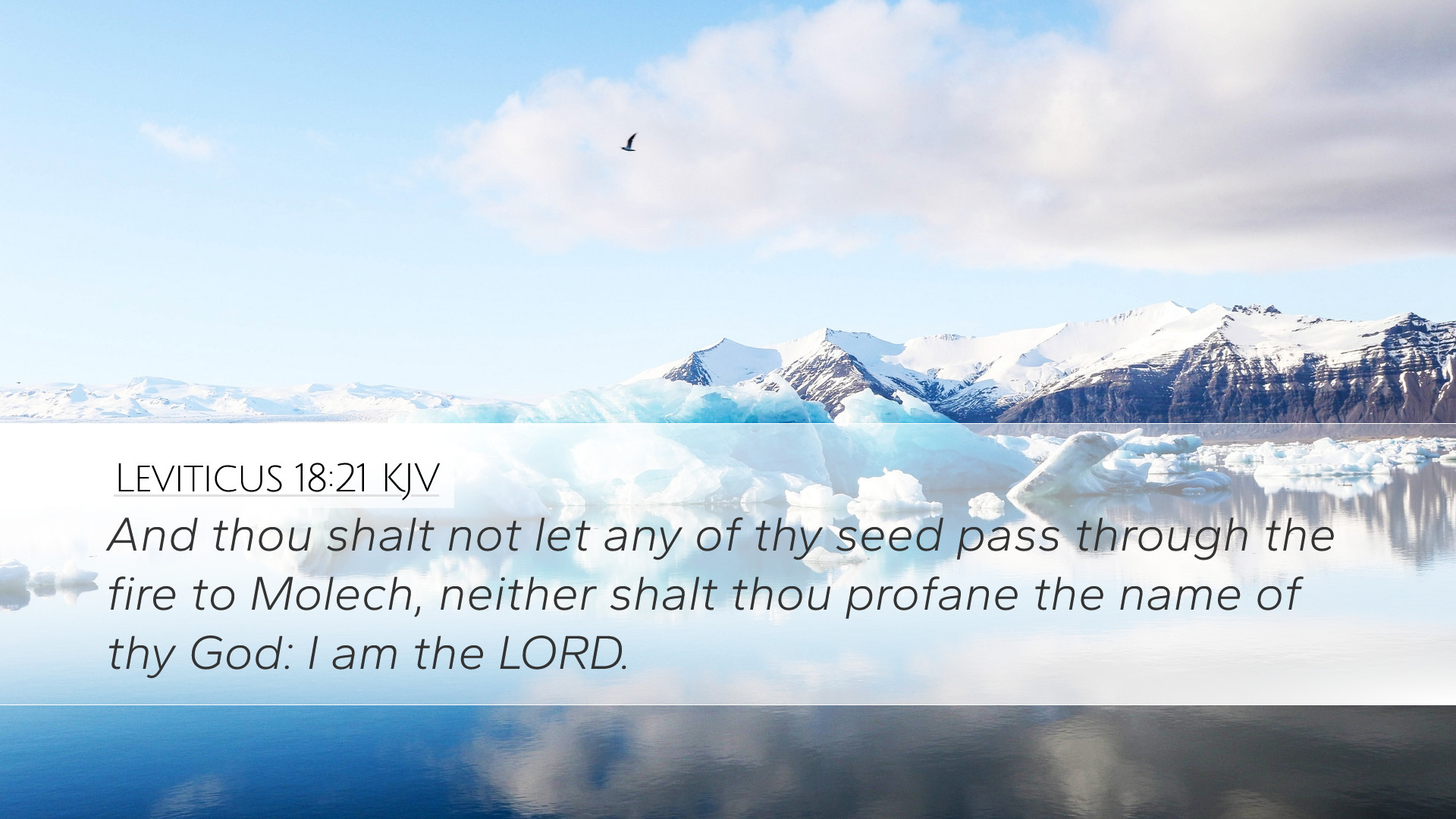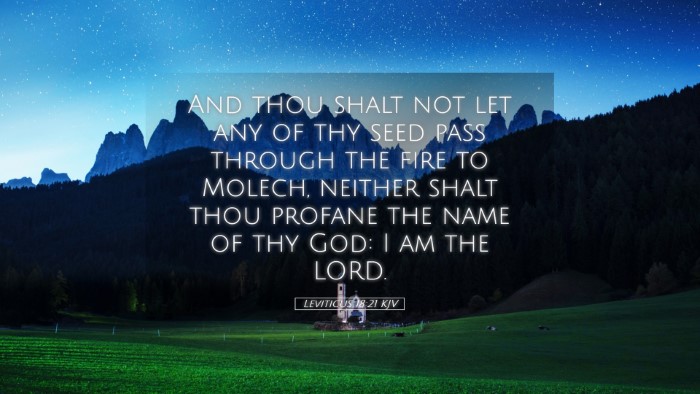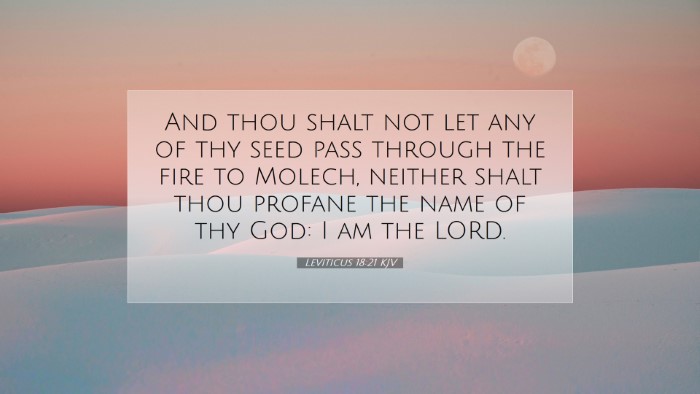Commentary on Leviticus 18:21
Verse: "And you shall not let any of your descendants pass through the fire to Molech, nor shall you profane the name of your God: I am the LORD."
Introduction
This verse from Leviticus serves as a critical prohibition against a vile practice prevalent in the ancient Near East—child sacrifice to the god Molech. The implications of this command hold profound significance for understanding idolatry, covenant faithfulness, and the sanctity of human life within the framework of Israel's relationship with God.
Exegesis and Theological Insights
-
Molech and the Context of Sacrifice:
According to Albert Barnes, Molech was a deity worshipped by the Ammonites, associated with the horrific practice of sacrificing children by fire. This act represented a grotesque distortion of religious devotion, elevating profit and societal gain above the sacredness of life. Both Matthew Henry and Adam Clarke emphasize that Israel was set apart to uphold a higher moral standard dictated by their covenant with God.
-
Prohibition Against Idolatry:
The strong admonition against allowing descendants to pass through the fire signifies a broader condemnation of idolatry. Matthew Henry notes that this prohibition underscores the necessity of pure worship and the complete renunciation of pagan practices. Engaging in such rites was not only an affront to God's purity but also a potential source of communal corruption.
-
The Sanctity of Life:
This verse inherently affirms the sanctity of life, highlighting that every human being, especially the innocent, is made in the image of God. Adam Clarke points out that any act that undermines this value, particularly child sacrifice, is antithetical to God's nature and His commandments. This prohibition urges the community to recognize its responsibility toward the vulnerable.
-
Covenant Identity:
By stating "I am the LORD," the passage not only enforces the command but also reaffirms God's identity and authority. This is a pivotal reminder to the Israelites of their unique relationship with God, marking them as His chosen people. Henry highlights that their covenant identity entails a commitment to living according to His statutes, distinctly separate from the surrounding nations.
-
The Role of Remembrance:
Clarke articulates the importance of memory in the life of Israel. The Israelites were to remember their deliverance from Egypt and their covenant obligations. Allowing their children to engage in abominable practices would signify a forgetting of the redemptive history they were called to live out. Thus, practicing remembrance would implicitly guard against the allure of idolatry.
-
Community Responsibility:
This commandment carries communal implications, as the decisions of individuals affect the entire community. Henry suggests that the collective observance of God's statutes reflects the moral and spiritual health of the nation. Tolerating the worship of Molech would erode spiritual integrity, leading to judgment and exile.
Practical Applications
The implications of Leviticus 18:21 extend into contemporary society in several significant ways:
-
Protecting the Innocent:
Just as the Israelites were called to protect their children from the destructive practice of worshipping Molech, modern believers are also urged to advocate for the sanctity of life, especially in the face of practices that endanger the vulnerable.
-
Faithfulness to God:
Today's Christians are challenged to remain faithful to God’s commandments, understanding that faithfulness requires distinguishing between legitimate worship and the allure of cultural practices that may conflict with biblical truths.
-
Collective Witness:
The community of believers must take collective responsibility for upholding biblical values. Just as the passage implies a community standard, church congregations today are reminded of their duty to create environments steeped in truth and righteousness.
Conclusion
Leviticus 18:21 is a profound statement of God's unwavering stance against idolatry and the sanctity of life. This verse echoes throughout history as a powerful reminder of the stakes involved in covenant relationship. As interpreters of Scripture, we are called to engage deeply with these texts, allowing them to shape our understanding of faith, morality, and community. The rich insights from historical commentaries invite modern readers to explore and embody the truths encapsulated in this ancient prohibition, ensuring that our worship aligns with the heart of God.


